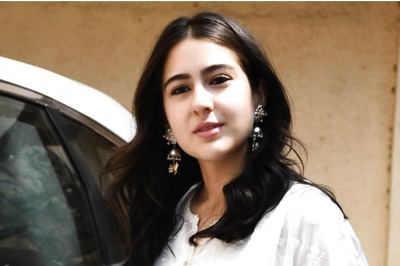
views
If you think it's good looks, a sense of humor, or sparkling conversation that we find attractive when looking for a short-term fling, think again. According to new UK research it is money, and plenty of it, which many of us find attractive in a no-strings-attached relationship.
Carried out by Swansea University in collaboration with the University of Nottingham, the new study recruited 151 heterosexual male and female participants (75 men and 76 women) to look at their relationship preferences in three different environmental situations.
In one situation, participants were asked to look at photos of 50 potential partners and indicate whether they would prefer a long or short-term relationship with each.
They were then shown a series of images of luxury items related to wealth, including fast cars, jewelry, mansions, and money, before being asked to look again at the images of the potential partners and once again indicate whether they would prefer a long or short-term relationship.
The results showed that after viewing the images that indicated wealth, both the male and female participants chose more partners for a short-term relationship than they did before viewing the images, with the team finding an increase of about 16%.
"Not all people prefer long-term committed relationships," said lead researcher Dr Andrew G. Thomas commenting on the findings. "Evolutionary psychologists believe that whether someone prefers a short-term relationship over a long-term one depends partly on their circumstances, such as how difficult it might be to raise children as a single parent."
"For example, in environments which have lots of resources, it would have been easier for ancestral mothers to raise children without the father's help. This made short-term mating a viable option for both sexes during times of resource abundance. We believe modern humans also make these decisions".
In other words, in a wealthy resource-rich environment we are less reliant on potential mates and can therefore choose them just for short-term relationships.
And just as the photos of wealth changed the participants' relationship preferences, so did other environmental situations.
After being shown images of dangerous animals and videos of people interacting with children, the participants chose more potential partners for long-term relationships.
"Importantly, when those circumstances change, we expect people to change their preferences accordingly. What we have done with our research is demonstrate this change in behavior, for the first time, within an experimental setting," commented Dr Thomas.


















Comments
0 comment